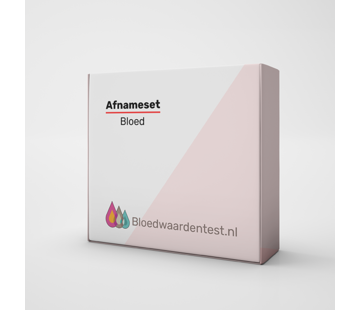Glucose
The test measures the amount of glucose in blood. (NAFl)
Glucose is chemically a simple, small sugar molecule. Food contains long chains of sugar molecules (carbohydrates) which are broken down into various small sugars, including glucose. It is absorbed into the blood through the wall of the small intestine.
Most body cells use glucose as a source of energy. After eating, the amount of glucose in the blood rises due to the large supply. Under the influence of insulin (a hormone from the pancreas) glucose is transported to the body cells where it is used for energy production or stored as a reserve fuel. If the body needs a lot of energy, the stored fuel is called upon. This requires glucagon, another hormone from the pancreas that ensures that glucose is released from storage, causing the blood sugar to rise.
In a healthy body, insulin and glucagon keep glucose levels in the blood well under control. In people with diabetes (diabetes mellitus), the glucose balance is disturbed, causing blood sugar levels to be too high. This can lead to serious damage to the kidneys, heart, eyes, blood vessels and nerves.
Elevated
High levels are usually caused by diabetes, but it can also be due to:
- Acromegaly (overproduction of growth hormone in the pituitary gland)
- Acute stress from various causes
- Chronic kidney failure
- Cushing's syndrome (overproduction of cortisol in the adrenal gland)
- Medications, such as: corticosterids, tricyclic antidepressants, diuretics, epinephrine, estrogens (oral contraceptives and hormone replacement), lithium, phenytoin, salicylates
- Very excessive eating
- Hyperthyroidism (overactive thyroid gland)
- Cancer or inflammation of the pancreas
Lowered
Low glucose levels (hypoglycemia) occur in people with diabetes who have injected too much insulin or eaten too little (e.g., due to illness). Low glucose can also occur in:
- Alcohol abuse
- Medications such as acetaminophen and anabolic steroids
- Large liver defects
- Poor functioning of the pineal gland
- Malfunctioning of the thyroid gland
- Overdose of insulin
- Insulinomas (tumours of the pancreas that produce insulin)
Glucose is just a snapshot, for a more reliable result you measure HbA1c. This blood value says something about your average glucose level over the past few months.
Do I need to be sober for this test?










